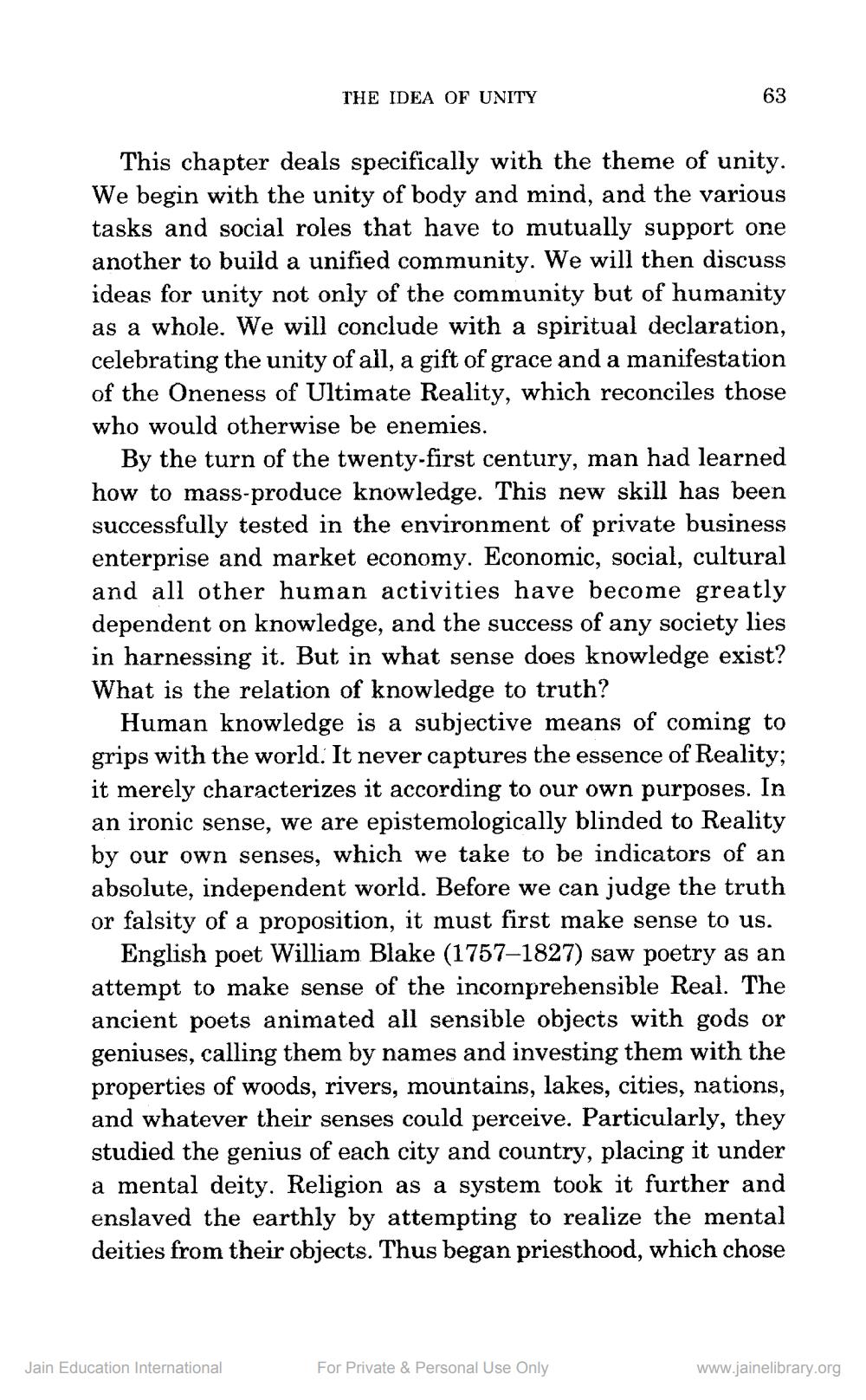________________
THE IDEA OF UNITY
This chapter deals specifically with the theme of unity. We begin with the unity of body and mind, and the various tasks and social roles that have to mutually support one another to build a unified community. We will then discuss ideas for unity not only of the community but of humanity as a whole. We will conclude with a spiritual declaration, celebrating the unity of all, a gift of grace and a manifestation of the Oneness of Ultimate Reality, which reconciles those who would otherwise be enemies.
Jain Education International
63
By the turn of the twenty-first century, man had learned how to mass-produce knowledge. This new skill has been successfully tested in the environment of private business enterprise and market economy. Economic, social, cultural and all other human activities have become greatly dependent on knowledge, and the success of any society lies in harnessing it. But in what sense does knowledge exist? What is the relation of knowledge to truth?
Human knowledge is a subjective means of coming to grips with the world. It never captures the essence of Reality; it merely characterizes it according to our own purposes. In an ironic sense, we are epistemologically blinded to Reality by our own senses, which we take to be indicators of an absolute, independent world. Before we can judge the truth or falsity of a proposition, it must first make sense to us.
English poet William Blake (1757-1827) saw poetry as an attempt to make sense of the incomprehensible Real. The ancient poets animated all sensible objects with gods or geniuses, calling them by names and investing them with the properties of woods, rivers, mountains, lakes, cities, nations, and whatever their senses could perceive. Particularly, they studied the genius of each city and country, placing it under a mental deity. Religion as a system took it further and enslaved the earthly by attempting to realize the mental deities from their objects. Thus began priesthood, which chose
For Private & Personal Use Only
www.jainelibrary.org




